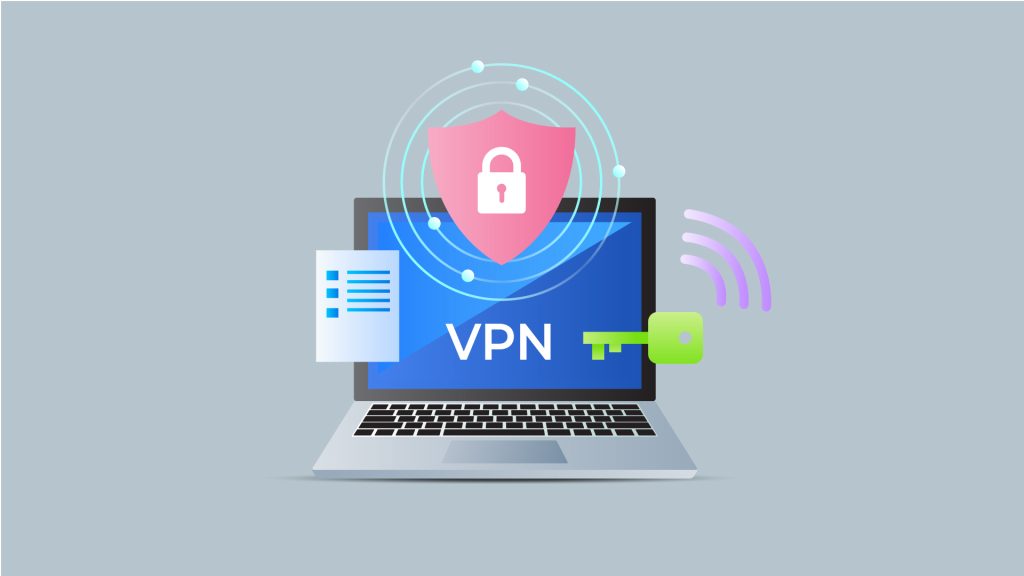It’s no secret that identity thieves and cybercriminals stalk vulnerable public Wi-Fi connections. They can steal your personal information or infect your computer with malware that tracks your keystrokes.
A VPN provides a secure tunnel that protects your online activity and encrypts the data you send while browsing the web. Choose a provider with servers located around the world to make it appear as if you’re connecting from a different geographic location.
1. Encryption
When you use a VPN, your data is encrypted, preventing hackers and identity thieves from seeing what you’re doing online. It’s a lot like wrapping a package in bubble wrap and sending it through the post office: only the sender and recipient can decipher the data once it gets to its destination.
A VPN’s connection encryption thwarts man-in-the-middle attacks on public Wi-Fi, and it protects you from cybercriminals that spy on your browsing history to serve you targeted ads or infect your device with malware. It’s also essential for business professionals who work while traveling, and it protects your personal internet connections at home and in cafes.
Look for a VPN that has strong encryption and security features like multi-factor authentication, kill switch, and DNS leak protection. It should be fast enough to stream video, but not so slow that you can’t use websites or are constantly reconnecting. It should also be able to connect on all your devices.
2. Security
When you use a VPN, your computer or device connects to a server, then to the Internet. That server encrypts your data, and then sends it back to you. This means your search history can’t be gathered and sold, and cybercriminals can’t spy on your browsing.
A VPN also helps you avoid being tracked by your ISP or government. It hides your IP address by rerouting your data through many different servers, so when you visit a site, the source of your connection is shown as one of the VPN routers—not your own device.
A good VPN provider will have many servers located around the world. You can choose which ones to connect to, depending on your location and preferences. Some provide options for “split tunneling,” so you can route some web traffic through the VPN and others through your regular network simultaneously. This allows you to surf the web on multiple devices without compromising security or performance.
3. Privacy
Privacy is one of the biggest reasons people use VPNs. Cybercriminals commonly exploit vulnerable public WiFi networks to spread malware and track users with keyloggers (which record everything you type, including passwords). The end-to-end encryption in VPNs stops your ISP and even governments from seeing what web activity you’re doing.
A VPN also reroutes your data through a private computer server, which hides your location so internet services can’t tell where you are located. Then, when you go to a website, it sees the encrypted data from the server, not your device.
When choosing a VPN, make sure you pick one that has strong encryption and security features like a kill switch that disconnects you from the internet if your VPN connection drops, DNS leak protection that prevents your ISP from knowing what websites you visit, and multiple servers in different countries to promote faster connections. Also, look for a VPN that offers options like “split tunneling” which lets you route some of your web traffic through the VPN while keeping other apps on your phone or tablet unprotected.
4. Accessibility
While not a cybersecurity silver bullet, a VPN can add an extra layer of protection while browsing on public Wi-Fi networks. A VPN routes your network connection through a remote server network, masking your device’s IP address, so others can’t see where you are or what you’re doing online.
When selecting a VPN, choose one with strong encryption standards and security features. Look for a kill switch that disconnects your internet if the VPN loses connection, DNS leak protection that ensures your device only uses servers that belong to the VPN service, and automatic connectivity so your VPN connects automatically every time you start up your computer or mobile device.
Finally, make sure the VPN you select has a range of servers in different countries to promote accessibility and help you circumvent censorship. Also, note that VPNs can slow down web browsing and download speeds, and some devices may not be compatible with some VPN services.






